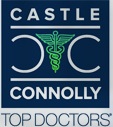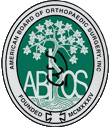
The bicep is a muscle located at the front and side of the arm in between the shoulder and elbow. Three tendons attach the bicep to the bone; one tendon attaches the lower end of the bicep to the elbow and two tendons attach the upper end to the shoulder. These tendons stabilize the bicep and allow for arm mobility. Bicep tendon tears and ruptures can occur from an accident or prolonged stress and strain.
Depending on the severity of the injury, the bicep may have a partial or complete tear in any of the three tendons. The most common bicep ruptures occur in the two proximal tendons at the shoulder. The “short head” tendon attaches to the coracoid process, a bump in front of the shoulder blade, and the “long head” tendon attaches to the glenoid at the top of the shoulder socket. Fortunately, the short head tendon rarely tears. Additionally, when the long head tendon tears, most people can still use their bicep due to support from the short head tendon. However, no matter the location or severity of the rupture, medical treatment should be sought out immediately to avoid any further injury.
Most bicep tendon tears can be treated without surgical intervention. Here are some conservative treatment options:
- Rest: Following any tendon tear, it is important to allow your body to heal by avoiding any strenuous heavy lifting or excessive physical activity.
- Ice: Icing the site of your injury for approximately 20 minutes at a time will help to reduce swelling.
- Medication: Your physician may recommend nonsteroidal anti-inflammatory medication to help with pain and swelling.
- Physical Therapy: Certain rehabilitation exercises can aid in increasing the strength, flexibility, and range of motion of the injured site.
Oftentimes, if the tear is severe or nonsurgical treatment options are ineffective, surgical intervention will be recommended. Additionally, when the distal bicep tendon at the elbow is torn, surgery may be suggested first. Fortunately, minimally invasive surgical treatment options, such as arthroscopic surgery, can successfully reattach the tendon to the bone, allowing for complete recovery of the bicep.
If you have suffered a bicep tear or rupture, contact Advanced Joint Replacement to discuss your treatment options today!
Dr. Yaser A. Metwally is board-certified by both the American Board of Orthopedic Surgery and the Royal College of Surgeons of Canada. He received his fellowship of Reconstructive Surgery from the Mayo Clinic in Rochester, Minnesota. Advanced Joint Replacement specializes in hip and knee replacement surgery, treatment of the shoulder and elbow, and trauma and sports medicine





 Book an Appointment
Book an Appointment
 Patient Portal
Patient Portal